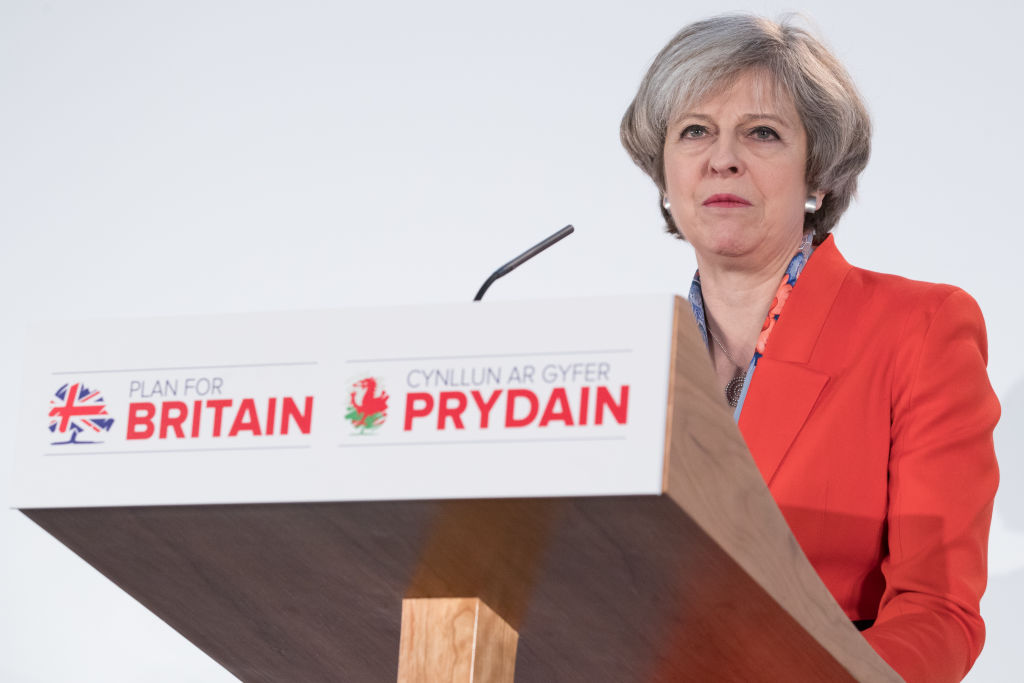The recent Welsh poll showing a ten-point Conservative lead in voting intentions for the forthcoming general election (and also, though much less reported, the first ever Conservative lead in devolved voting intentions in Wales), came as a shock to many. The next Welsh poll, out next week, will tell us whether this first one was just an outlier or the more solid harbinger of an historic realignment in Welsh politics. But why should it be such a surprise that the governing party of the UK, with around a twenty-point opinion poll lead across Britain, should have a lead half that size in one particular part of Britain? The astonishment is that the Conservatives winning in Wales offends many deeply-held and cherished myths and assumptions. The Welsh just don’t do Conservatism, surely?
These mindsets have very deep roots. The Welsh Tories have underperformed in elections for many years. The last general election in which the Conservatives won in Wales came in the 50s – the 1850s. Ever since franchise extension in the 19th century, the Conservatives have always done worse in Wales than in England.
During the 19th century, Conservative identification with the established Anglican church was a deeply divisive issue. The half-century Liberal hegemony in Wales that ran until World War I was built on deep social links between liberalism and the non-conformist protestantism that came to dominate much of Welsh society. Later, after the issue of Anglican disestablishment was settled in Wales in 1920, politics in Wales became much more socio-economic in focus. In heavily industrialised and – even more to the point, unionised – Wales, the party of organised Labour came to be utterly dominant. Labour have come first (in both votes and seats) in Wales at every general election from 1922 onwards. Even Michael Foot’s ‘longest suicide note in history’ could not interrupt this sequence.
The great industrial trade unions have now, however, nearly vanished from Welsh life. More recently, Labour have taken much of their support from the white collar public sector, but austerity means that sector of the economy is also diminished and further fading.
Still, Labour dominance has persisted. In the 2016 Welsh Assembly election, Labour (though with a much-reduced vote) retained nearly half of the sixty seats; the Welsh Tories won eleven. Welsh Labour may well be as much of a paper tiger as was Scottish Labour prior to its 2015 evisceration. But Labour in Wales have been very lucky in its opponents. Plaid Cymru have rarely – and never in this century – come close to matching the strength of their Scottish sister party, the SNP. And the weakness of Welsh Conservatism has persisted.
This Welsh Conservative weakness cannot simply be explained by Wales being poorer, or more working class, or more unionised, than England. It has long gone far beyond that. At pretty much any time in the last century, the average working – or middle-class person in Wales has been substantially less likely to vote Conservative than their equivalents in England. There has been little of the tradition of working-class Toryism in Wales that has been seen on the other side of Offa’s Dyke.
This situation has allowed much of the Welsh chattering classes to indulge fantasies about the Welsh being a more politically radical nation than the English. Across much of the centre-left, and even some more moderate Welsh Conservatives, the image has been cherished of the Welsh as an outward-looking, pro-European and progressive stateless nation. Although detailed academic analyses of public attitudes have found little or no evidence that such views are any more abundant in Wales than across the border, that Wales has continued to vote more to the left has allowed such illusions to persist.
But the reality has long been not that Wales is more politically progressive; simply and more specifically that it has been anti-Conservative. Detailed research I carried out some years ago showed a deep-rooted sense among many Welsh people that the Conservatives were a fundamentally English party. It is unsurprising that the Welsh Tories have tended to do best in the more ‘anglicised’ parts of Wales, and have long performed abjectly in the heavily Welsh-identifying south Wales valleys.
Why may the long and sorry record of Welsh Conservative defeats finally be changing? Part of the story, in Wales as elsewhere, is undoubtedly the scarcely believable uselessness of the Labour party’s UK-wide leadership. And Labour’s social base in Wales continues to erode. But the key factor explaining Wales’ changing political orientation is Brexit. Despite Wales being a significant net beneficiary from the EU budget, and despite nearly all the Welsh political establishment supporting Remain (with the notable exception of Andrew RT Davies, the Tories’ Welsh Assembly leader), Wales voted for Leave. Contrary to the progressive fantasies, there is deep Euro-scepticism among many people in Wales. Theresa May’s focus of the election around a Brexit that she promises to deliver has struck a substantial chord with many of the Welsh people. Theresa May might just be the person who brings to an end the near-century long era of Red Wales.
Roger Scully is Professor of Political Science at the Wales Governance Centre, Cardiff University. He is the principal investigator for the Welsh Election Study.






Comments